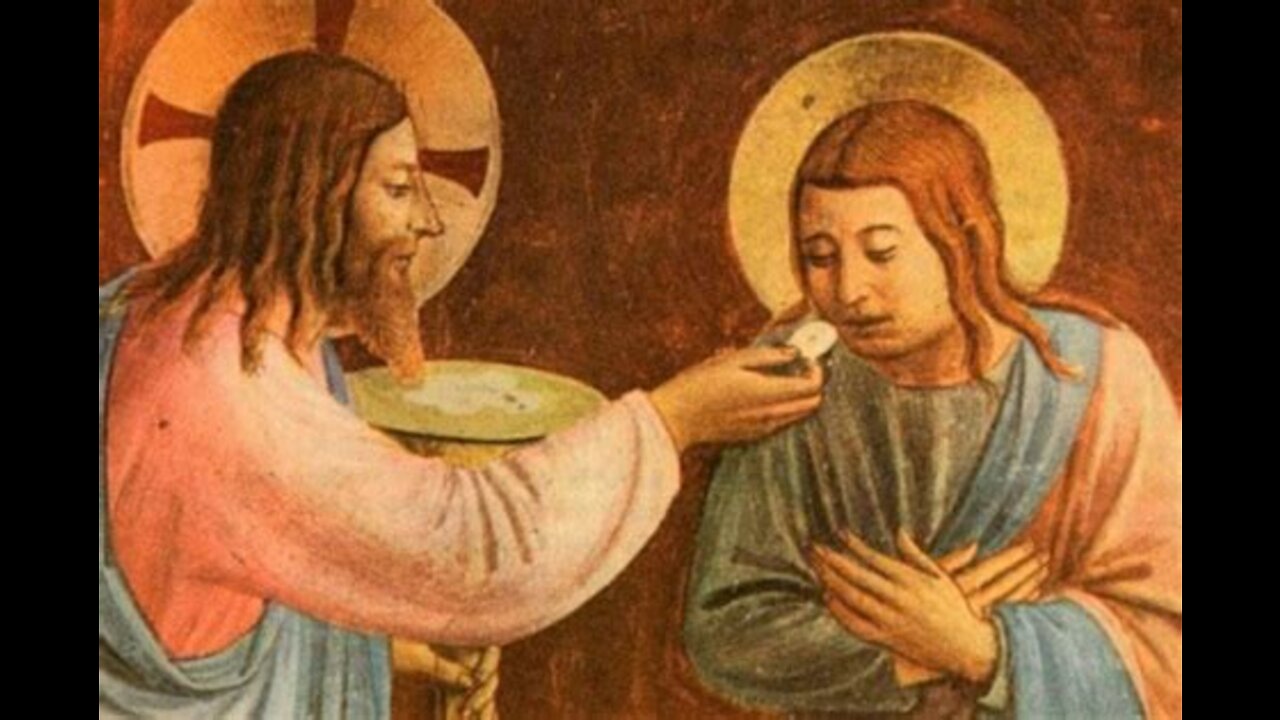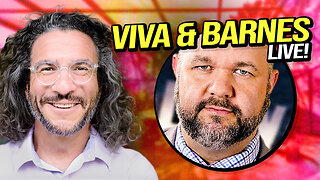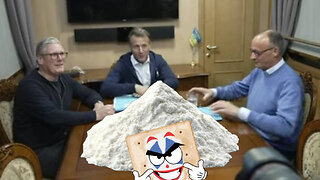Premium Only Content

Eucharist IV
V Didache (100) "The teaching of the Lord to the Gentiles (or Nations) by the twelve apostles".
, esp Chap 9, 10, 14 and 1 Cor connection, these 3 chapters may be older than document itself
- sacred ritual and meal
- benediction before bread and wine
- self-examination (confession of sins)
- need for baptism
- while it may be coupled to a meal, it is NOT open to all
- ecclesial unity
- thanksgiving to God through Jesus Christ, eucharist
- Sacrificial character Chap 14
- Special day, every Sunday of the Lord (Chapter 14)
VI. Clement of Rome (97)
First Epistle of Clement to the Corinthians 40:1 show a well-regulated order for the worship of God, “We must do all things that the Lord told us to do at stated times, in proper order. For he commanded that the offerings and services should be performed, not rashly nor in disorder, but a fixed times and hours. Ah himself by his most high will arranged where and by whom they should be celebrated so that everything should be done piously according to his command and should be agreeable to his will. Therefore, those who make their offerings at the appointed times are well pleasing and blessed, they follow the command of the Lord and do not err. To the high priest his own services are appointed; a special place is given to priests, and Levites have their offices. The layman is commanded by lay laws, each of us, brothers, should please God honourably in his own place with a good conscience, not transgressing the appointed order of the service.”
>> Many important features are clearly stated, but for our purposes note the fixed order in its main outline of Christian services attributed to direct instruction from the Lord
VII Justin Martyr c. 100- 168 Chief of Early Apologist, writes FROM Rome
- offers developed view of rites and understanding with Eucharist, precious document
- First Apology written to Antonius Pius & Dialogue with Trypho written in Greek.
- Shape of Sunday Eucharist. Note Sunday was the special day set aside, not the Sabbath of Saturday. (1 Apology 67: 3, 7)
- special place “to where those from town and country come”. This does not fit the common notion of a domestic setting in the Mediterranean world. This is a shift in research from modern times, Deo graits.
St. Peter knew Greek, some scholars dominant Latin & Hebrew. Phillipe Andrew Greek. Possible Peter can say the Mass in Greek though don’t know it well. Most people in this area Hebrew, Greek, Latin. Capacity to say Mass in all three languages. And/both can both be right.
(1 Apology 67)
- Remembrance of Jesus Christ’s sufferings, incarnation, thanksgiving
- offered at length depending on the presider (1 Apology 67)
- OT types fulfilled in Eucharist: fine flour Lev 14:10-20 & Trypho 41,1; supply of bread promise Is 33:16 & Trypho 70,4; pure sacrifice rising of sun to its setting Mal 1:10-12 & Trypho 41,2
- eucharist praise to Trinity in everyplace
- when offered by those worthy (Trypho 117,3)
- incarnation Christ “took flesh and blood for our salvation,” so too “the food over which thanks have been given through [a] word of prayer which is from him, from which our blood and flesh are fed by transformation, is both the flesh and blood of that incarnate Jesus.” In parallel with the incarnation, the act of thanksgiving, through words that come from the Logos, transforms the bread and wine into Jesus’ flesh and blood: the bread and wine are “eucharistized.” (1 Apology 65)
- Not common food and have conditions for participation: faith & baptism.
Defined ritual (1 Apology 67)
Reading from apostles & prophets
Homily by bishop (67.4)
Intercession
Kiss of peace
Offertory, bread & wine with water are bought up and received by bishop (65.3, 67.5)
Thanksgiving (Eucharistic prayer, anaphora which are prayers)
Consecratory prayers
With Amen. Eucharist is the technical name for the consecrated bread & wine
Communion under both kinds, taken to those absent
Collection
>>On a special day Sunday & special place
One can also surmise there would have been candles, linens, flowers, a bishop, and priests in attendance.
Peter, bishop of Antioch, can see him saying Mass in there in Greek, Council of Jerusalem Peter say Mass in Hebrew or Aramaic, sent to Rome say Mass in Latin. Peter probably fluent in Latin. Choose our bishops to go to a place, some exceptions, i.e. Vigano very good in English sent to US nuncio, where they are adept at the language into Sees not necessarily their home or up bringing.
>> Didache, Ignatius, and Justin together show that not all Christian meals were proper Eucharists.
-
 11:35
11:35
Fides et Ratio
1 year agoIgnatius’ Rules for Discernment Journey to God III
46 -
 3:03:42
3:03:42
vivafrei
12 hours agoEp 263 Trump Trans Ban REINSTATED! Ashli Babbitt Settlement! Ex-CIA Doc SUES! Canada Election & MORE
100K106 -
 2:11:39
2:11:39
TheSaltyCracker
4 hours agoCocaineGate ReeEEEStream 05-11-25
97.1K141 -
 28:54
28:54
Afshin Rattansi's Going Underground
17 hours agoProf. John Mearsheimer: Israel OWNS the Trump Administration, Israel is a LIABILITY for the US
19K44 -
 1:05:58
1:05:58
Sarah Westall
5 hours agoNeocon Revival: Why War Hawks Like Nuland and Bolton Never Go Away w/ Joe Hoft
47.2K18 -
 3:11:14
3:11:14
Barry Cunningham
9 hours agoBREAKING NEWS: PRESIDENT TRUMP GETS DEAL DONE WITH CHINA!
62.6K60 -
 2:34:55
2:34:55
Nerdrotic
7 hours ago $0.74 earnedExpeditions into the Ancient Jungle w/ Luke Caverns | Forbidden Frontier 101
42.6K4 -
 0:50
0:50
JULIE GREEN MINISTRIES
16 hours agoHappy Mother's Day
112K153 -
 16:11
16:11
CryptoWendyO
11 hours ago $2.17 earnedAMAZING REASON CRYPTO TURNED BULLISH! BITCOIN $110,000 SOON!
89.1K38 -
 6:15:56
6:15:56
Total Horse Channel
1 day ago2025 Spring Showdown | May 11th | Barrel Racing Finals
104K4